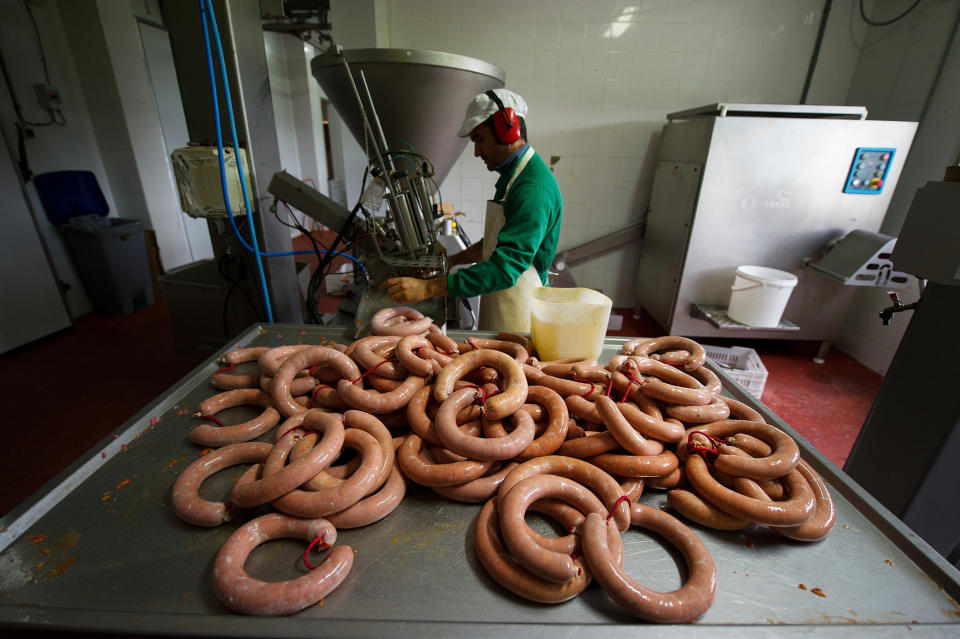'No proof' that red and processed meats cause cancer, says study

People are being told to continue eating red meat by experts who say there is “no proof” it can cause cancer.
A team of international researchers branded the evidence linking red meat with serious health problems so weak that they said people should carry on enjoying three to four portions of red and processed meat per week on average.
Current recommendations from health organisations including the World Cancer Research Fund (WCRF), tell people to avoid processed meat altogether or eat very little of it, while limiting red meat to about three portions a week.
The Department of Health and Social Care (DHSC) also recommends that anyone who eats more than 90g of red or processed meat per day should try to cut down to 70g or less.
For the new study, on 54,000 participants, a team of experts assessed the quality of the available evidence on eating meat and health outcomes.
The team said their analysis offered the “most up-to-date evidence on the topic”.
Study author Bradley Johnston, associate professor at Dalhousie University in Canada, said: “Based on the research, we cannot say with any certainty that eating red or processed meat causes cancer, diabetes or heart disease.”
The team’s conclusion – that most adults should continue to eat their current level of red and processed meat (about three to four times a week) – is contrary to almost all other guidelines that exist.
Mr Johnston said the team found no real benefit from cutting down below this level.

He said: “From 12 randomised controlled trials enrolling about 54,000 individuals, we did not find a statistically significant or an important association in the risk of heart disease, cancer or diabetes for those that consumed less red or processed meat.”
While there was some evidence for a small reduction in risk for those consuming three fewer portions a week, “the certainty of evidence was low to very low,” he added.
“Our bottom line recommendation – which is a weak recommendation based on low quality evidence – is that for the majority of people, not everyone, continuing their red and processed meat consumption is the right approach.”
READ MORE FROM YAHOO NEWS
Extra red meat helpings linked to increased odds of death
Here's What Eating Processed Foods for Two Weeks Does to Your Body
The Mounting Evidence Against Ultra-Processed Foods
Dr Giota Mitrou, director of research at the WCRF, said the new interpretation of the research “could be putting people at risk by suggesting they can eat as much red and processed meat as they like without increasing their risk of cancer.
He stressed that this is not the case.
“We stand by our rigorous research of the last 30 years and urge the public to follow the current recommendations on red and processed meat.”
“The recommendation that adults continue current red and processed meat consumption is based on a skewed reading and presentation of the scientific evidence.”

Tim Key, professor of epidemiology and deputy director of the cancer epidemiology unit at the University of Oxford, said: “There’s substantial evidence that processed meat can cause bowel cancer – so much so that the World Health Organisation has classified it as carcinogenic since 2015.
“Today’s new publication reports results essentially identical to the existing evidence, but describes the impact very differently, contradicting the general consensus among cancer research experts.
“The authors here have found the same evidence of an effect but they think it is so modest that it isn’t worth recommending we do anything about it.”
Dr David Nunan, senior researcher at the centre for evidence-based medicine, University of Oxford, said the experienced team of researchers “likely did a good job and the findings and judgements are likely to be robust and trustworthy”.
But Dr Marco Springmann, senior researcher on environmental sustainability and public health at the University of Oxford, said: “The recommendation that adults continue current red and processed meat consumption is based on a skewed reading and presentation of the scientific evidence.”
In April, a separate study led by Oxford University and funded by Cancer Research UK, found that even small amounts of red and processed meat – such as a rasher of bacon a day – can increase the risk of bowel cancer.
They estimated that eating three rashers of bacon a day rather than just one could increase the risk of bowel cancer by as much as 20 per cent.

